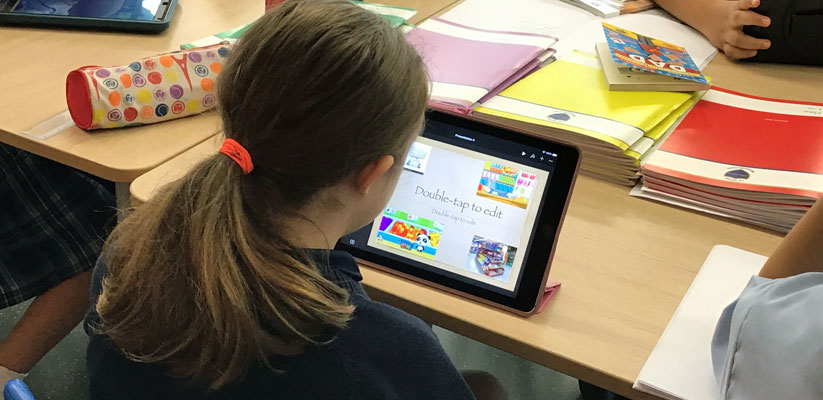Myth Busting for Dyslexia Awareness Month
October is Dyslexia awareness month, something which is very pertinent to me both professionally, in my role as Head of Inclusion and personally, as someone who was diagnosed with Dyslexia at the age of 9. The aim of Dyslexia awareness month is to build our understanding of Dyslexia and how it can impact learning, which seems like the perfect time for our first inclusion blog of the academic year.
As is the case with many additional learning needs and disabilities, there are many misconceptions around Dyslexia. Often, when we don’t know a great amount of detail about something, particularly something that is formally diagnosed and can be ‘labelled,’ a certain stigma can develop. I have been in many situations where parents avoid gaining information about their child’s needs as they want to avoid such a label being applied. Effective teaching requires effective assessment, for the needs of all children, so naturally this can be problematic and disrupt our ability to provide children with the best possible learning opportunities.
In reality, the reason that many of the learning needs and disabilities which we are likely to have heard of can be classified, is because they are common enough for us to do so. In order for us to recognise them, there needs to be a large number of people with a similar needs profile who experience similar challenges. Fortunately, this often means that there is more research, information and support strategies in place, all of which are positive things and lead to a better life experience which allows people to overcome the challenges they face. Of all formally diagnosed special educational needs, Dyslexia is by far the most common. In the UK approximately 70 percent of all learners classified as having special needs in the mainstream are identified as dyslexic. Due to this, the amount of research, training and resources available to support Dyslexia is vast.
Many of the negative connotations around Dyslexia are based around false or outdated information, so in order to combat this and better inform our Arcadia community, I have done some ‘Dyslexia Month myth busting,’ using facts to counteract some of the more common misconceptions:
MYTH: Dyslexia is a rare condition that only affects very few people.
FACT: This couldn’t be further from the truth. Research has shown that between 10 and 20 percent of the population, which means as many as 1 in 5 people are affected by Dyslexia. It is more common to be dyslexic than it is to have ginger hair, green eyes or to be left handed.
MYTH: Dyslexia affects a person’s I.Q and intelligence.
FACT: This is my least favourite of all the myths! There is no correlation at all between being dyslexic and a person’s intelligence. Often, those with Dyslexia excel in other areas. Richard Branston, Andy Warhol, Orlando Bloom and even Albert Einstein are all part of the extensive list of famous overachievers with Dyslexia.
MYTH: Being diagnosed with Dyslexia will have a damaging effect on a child’s experience in school and their application to further education.
FACT: Being diagnosed with any additional need should always have a positive impact. It gives educators more information which can be used to support a child and in the UAE no one can be denied access to any form of education based on a disability. It also means schools and universities can make accommodations to ensure a student’s full potential is reached.
MYTH: Dyslexia is a vision problem.
FACT: Vision problems don’t cause Dyslexia. Kids with Dyslexia are no more likely to have eye and vision problems than other kids. It’s true that some may have problems with visual perception, or visual processing. That means the brain has trouble recognising details in images and processing what the eyes are seeing. Those challenges can make reading difficult. But they’re not a part of Dyslexia.
MYTH: Being Dyslexic prevents people working in certain jobs or fields.
FACT: In an age where we can talk to our phones to ask them to type out a text, or have a conversation with Amazon Alexa about the news, having some challenges in reading, spelling and writing is having far less impact than in the past. Those with Dyslexia are likely to be able to work in any field they choose too… provided they put in the work! Just ask NASA… over 50 percent of their employees are diagnosed as dyslexic.
MYTH: Dyslexia doesn’t affect those who do not speak English.
FACT: In fact, Dyslexia affects people all over the world, regardless of the language they speak. At times it can take longer to diagnose for children reading and writing in a learned language, as difficulties can be misinterpreted as a language gap as opposed to a learning need.
I hope that in reading this blog you have either learnt something new, or at least reaffirmed some facts you knew already. As is always the case with any queries or concerns around additional educational needs, our Arcadia Inclusion team are available to offer their support.

